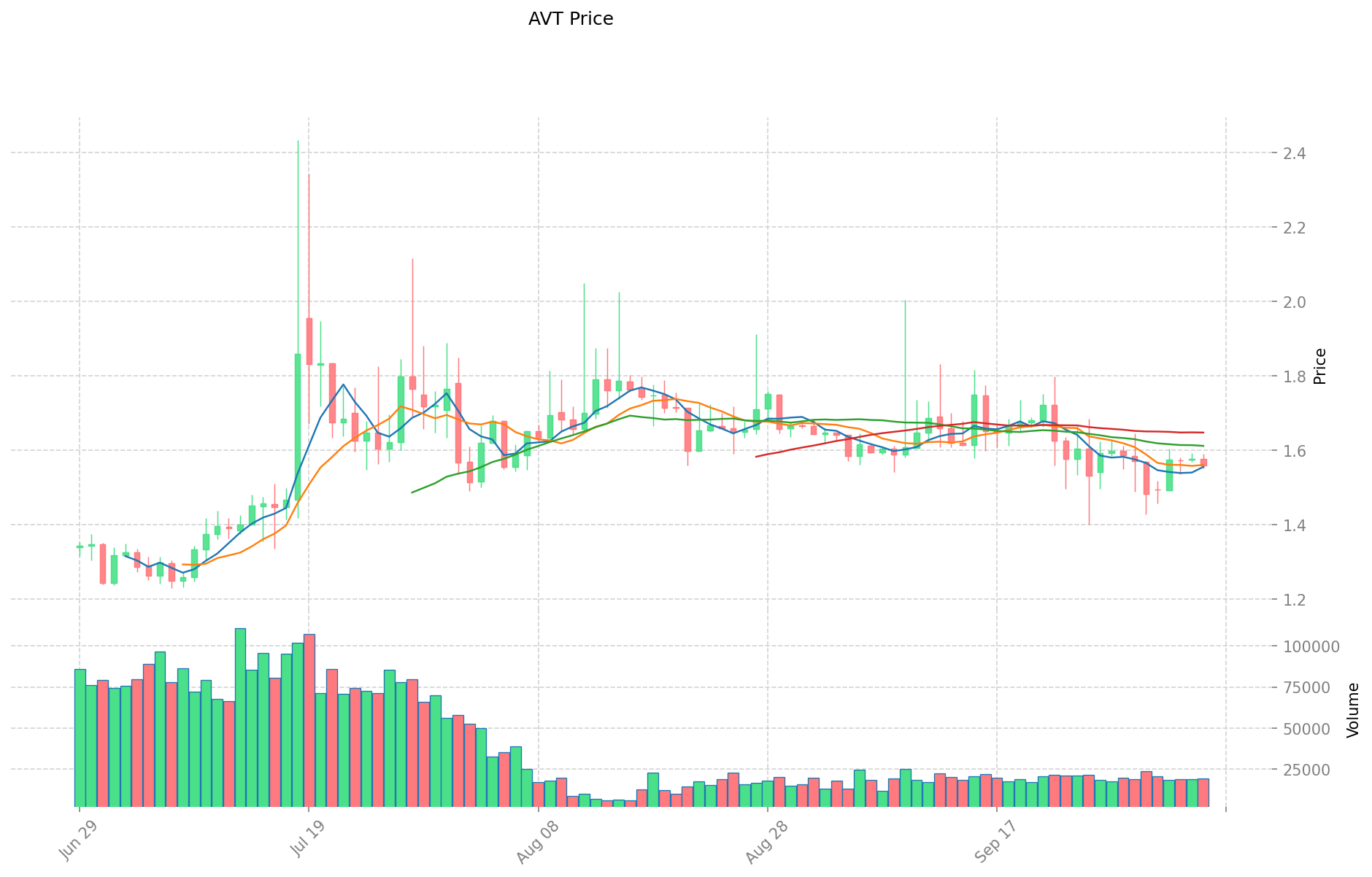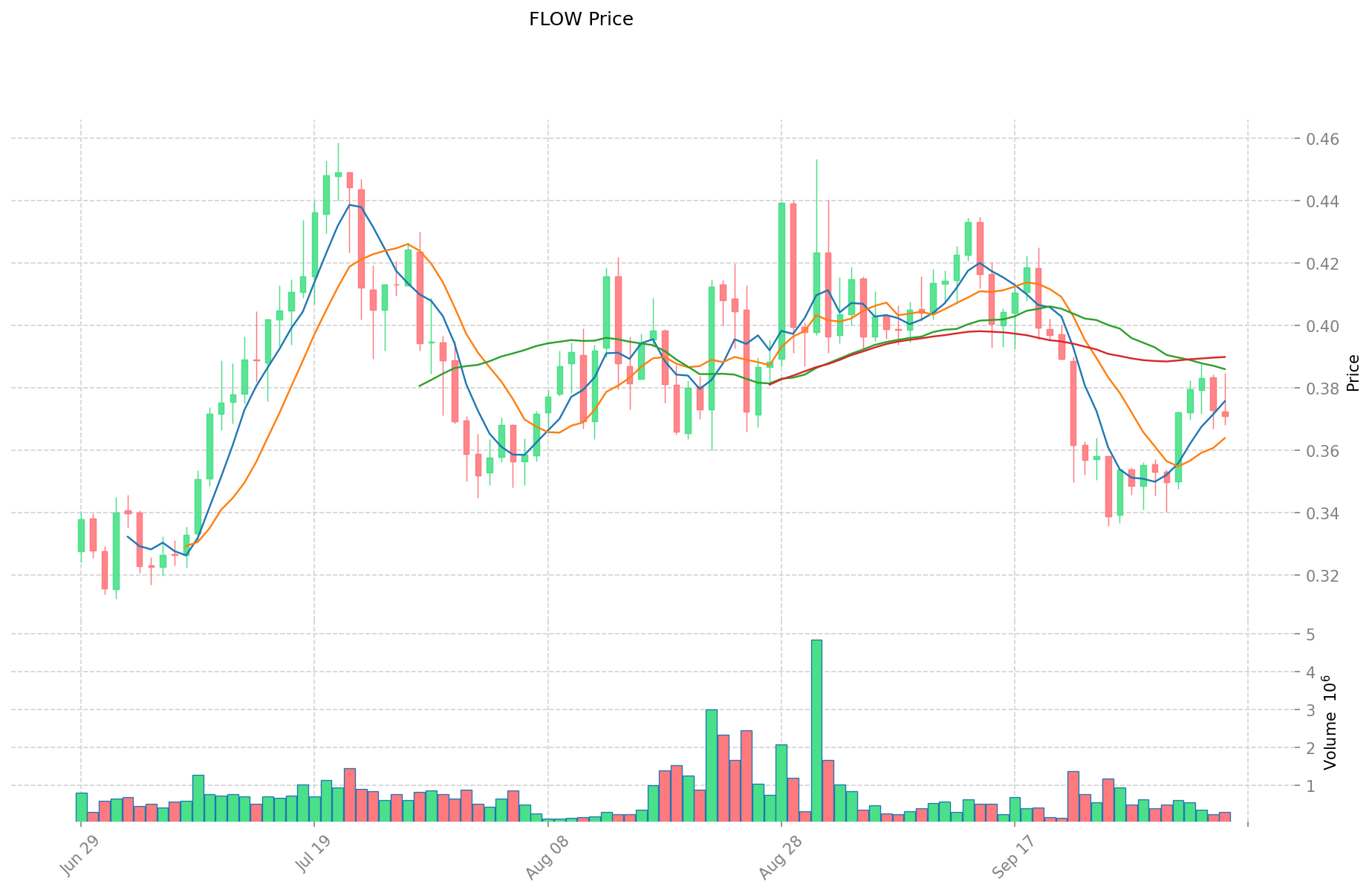AVT ve FLOW: NFT ekosisteminde önde gelen iki dijital varlık protokolünün karşılaştırılması


Giriş: AVT ile FLOW Yatırımı Karşılaştırması
Kripto para piyasasında Aventus (AVT) ve Flow (FLOW) karşılaştırması, yatırımcılar için kaçırılmaması gereken bir gündem olmaya devam ediyor. Bu iki kripto varlık; piyasa değeri sıralaması, uygulama alanları ve fiyat performansı bakımından belirgin ayrışmalar sergilerken, kripto varlıklar ekosisteminde de farklı konumlar üstleniyor.
Aventus (AVT): 2017’de piyasaya çıktığından beri blokzincir tabanlı biletleme çözümüyle piyasa tarafından tanındı.
Flow (FLOW): 2020’de tanıtıldı, yeni nesil oyunlar ve uygulamalar için bir platform olarak öne çıktı, küresel ölçekte yüksek işlem hacmi ve piyasa değeriyle dikkat çekti.
Bu makalede AVT ve FLOW’un yatırım değerleri; tarihsel fiyat hareketleri, arz mekanizmaları, kurumsal benimsenme, teknolojik ekosistemler ve gelecek tahminleri üzerinden kapsamlı biçimde karşılaştırılacak ve yatırımcıların en çok yanıt aradığı soruya odaklanılacaktır:
"Şu anda hangisi daha avantajlı bir alım?"
I. Fiyat Geçmişine Göre Karşılaştırma ve Güncel Piyasa Durumu
AVT ve FLOW Tarihsel Fiyat Eğilimleri
- 2021: AVT, 10 Mart 2024’te 10,25 $ ile tüm zamanların en yüksek seviyesini gördü ve kayda değer bir büyüme yaşadı.
- 2021: FLOW, 5 Nisan 2021’de genel kripto piyasası boğa koşusunda 42,40 $ ile zirveye ulaştı.
- Karşılaştırma: Son piyasa döngüsünde AVT, 10,25 $’dan 0,029 $’a geriledi; FLOW ise 42,40 $’dan 0,292 $’a düştü. Her iki token da sert düzeltmeler gördü.
Güncel Piyasa Durumu (06 Ekim 2025)
- AVT güncel fiyatı: 1,556 $
- FLOW güncel fiyatı: 0,3717 $
- 24 saatlik işlem hacmi: AVT 30.744,58 $; FLOW 106.162,16 $
- Piyasa duyarlılık endeksi (Korku & Açgözlülük Endeksi): 74 (Açgözlülük)
Anlık fiyatları görmek için tıklayın:
- AVT güncel fiyatı Piyasa Fiyatı
- FLOW güncel fiyatı Piyasa Fiyatı


AVT ve FLOW Yatırım Değerine Etki Eden Temel Faktörler
Piyasa Likiditesi
- Piyasa Koşulları: Yatırım yöneticileri, farklı piyasa koşullarında likiditeye odaklanır
- Fiyat Etkisi: Yetersiz likidite, alım veya satış maliyetini etkileyebilir
- Yatırımcı İlgisi: Yatırımcı ilgisinin ciddi ölçeklere ulaşması için yeterli piyasa derinliği gerekir
Portföy Volatilite Kriterleri
- ESG Entegrasyonu: Aktif tahvil yatırımlarında ESG faktörlerinin dahil edilmesi portföy volatilitesini azaltabilir
- Risk Ayarlı Getiri: Belirli tahvil tiplerinde bu strateji risk ayarlı getirileri yükseltebilir
- Değerleme Ölçütü: Gerçeğe uygun değeri değişken olan yatırımlar, maliyet eksi değer düşüklüğüyle ölçülebilir
ESG Performans Kriterleri
- Risk Yönetimi: Araştırmalar, yüksek ESG performansına sahip şirketlere yatırımın bazı riskleri yönetebileceğini gösteriyor
- Sürdürülebilirlik: Yönetim, karşılıkları tahmin ederken iş planlarının sürdürülebilirliğini değerlendirir
- Toparlanma Yetisi: Finansal zor dönemlerde performansı artırma kapasitesi önemli bir kriterdir
Finansal Dayanıklılık Ölçütleri
- Geri Kazanım Tutarları: Proje ve iflas tasfiyelerinden beklenen geri kazanım miktarları
- Performans Artışı: Zorlu finansal dönemlerde performansı yükseltme kapasitesi
- Değerleme Güvenilirliği: Gerçeğe uygun değer güvenilir biçimde ölçülemiyorsa, maliyet bazlı yöntemler kullanılabilir
III. 2025-2030 Fiyat Tahmini: AVT ve FLOW
Kısa Vadeli Tahmin (2025)
- AVT: Muhafazakâr 1,33902 $ - 1,557 $ | İyimser 1,557 $ - 1,72827 $
- FLOW: Muhafazakâr 0,316115 $ - 0,3719 $ | İyimser 0,3719 $ - 0,535536 $
Orta Vadeli Tahmin (2027)
- AVT, boğa piyasasına geçebilir; beklenen fiyat aralığı 1,303595136 $ - 2,790508338 $
- FLOW, istikrarlı büyüme dönemine girebilir; beklenen fiyat aralığı 0,429217228 $ - 0,575541283 $
- Başlıca itici güçler: Kurumsal sermaye girişi, ETF, ekosistem gelişimi
Uzun Vadeli Tahmin (2030)
- AVT: Temel senaryo 3,230419501672875 $ - 4,65180408240894 $ | İyimser senaryo 4,65180408240894 $+
- FLOW: Temel senaryo 0,684757557652 $ - 0,73953816226416 $ | İyimser senaryo 0,73953816226416 $+
Feragatname
AVT:
| Yıl | Öngörülen En Yüksek Fiyat | Öngörülen Ortalama Fiyat | Öngörülen En Düşük Fiyat | Değişim Oranı |
|---|---|---|---|---|
| 2025 | 1,72827 | 1,557 | 1,33902 | 0 |
| 2026 | 2,4310998 | 1,642635 | 1,0184337 | 5 |
| 2027 | 2,790508338 | 2,0368674 | 1,303595136 | 30 |
| 2028 | 3,59639492481 | 2,413687869 | 2,09990844603 | 55 |
| 2029 | 3,45579760644075 | 3,005041396905 | 2,01337773592635 | 93 |
| 2030 | 4,65180408240894 | 3,230419501672875 | 2,099772676087368 | 107 |
FLOW:
| Yıl | Öngörülen En Yüksek Fiyat | Öngörülen Ortalama Fiyat | Öngörülen En Düşük Fiyat | Değişim Oranı |
|---|---|---|---|---|
| 2025 | 0,535536 | 0,3719 | 0,316115 | 0 |
| 2026 | 0,5217757 | 0,453718 | 0,41742056 | 22 |
| 2027 | 0,575541283 | 0,48774685 | 0,429217228 | 31 |
| 2028 | 0,65923864246 | 0,5316440665 | 0,4253152532 | 43 |
| 2029 | 0,774073760824 | 0,59544135448 | 0,4882619106736 | 60 |
| 2030 | 0,73953816226416 | 0,684757557652 | 0,5478060461216 | 84 |
IV. Yatırım Stratejisi Karşılaştırması: AVT ve FLOW
Uzun Vadeli ve Kısa Vadeli Yatırım Stratejileri
- AVT: Blokzincir tabanlı biletleme çözümleri ve ekosistem potansiyelini hedefleyen yatırımcılar için uygun
- FLOW: Yeni nesil oyun ve uygulama platformlarına odaklanan yatırımcılar için uygun
Risk Yönetimi ve Varlık Dağılımı
- Temkinli yatırımcılar: AVT %30, FLOW %70
- Agresif yatırımcılar: AVT %60, FLOW %40
- Koruma araçları: Stablecoin tahsisi, opsiyonlar, çapraz döviz portföyleri
V. Potansiyel Risk Karşılaştırması
Piyasa Riski
- AVT: Sınırlı piyasa likiditesi ve yüksek volatilite
- FLOW: Oyun ve NFT sektörlerinde piyasa duyarlılığına duyarlı
Teknik Risk
- AVT: Ölçeklenebilirlik, ağ kararlılığı
- FLOW: Hash gücü yoğunlaşması, muhtemel güvenlik açıkları
Düzenleyici Risk
- Küresel düzenleme politikalarının her iki token üzerinde farklı etkileri olabilir
VI. Sonuç: Hangisi Daha Avantajlı Alım?
📌 Yatırım Değeri Özeti:
- AVT avantajları: Blokzincir biletleme alanında niş pazar, etkinlik yönetiminde büyüme potansiyeli
- FLOW avantajları: Oyun ve NFT sektörlerinde köklü varlık, daha geniş ekosistem ve kullanıcı kitlesi
✅ Yatırım Tavsiyesi:
- Yeni yatırımcılar: FLOW’un piyasa hâkimiyeti nedeniyle dengeli ancak daha yüksek FLOW tahsisi önerilir
- Deneyimli yatırımcılar: Her iki token’da fırsatları değerlendirin, AVT daha yüksek risk-getiri oranı sunabilir
- Kurumsal yatırımcılar: Portföy ihtiyaçları ve risk toleransına göre her iki token’ı analiz edin
⚠️ Risk Uyarısı: Kripto para piyasası oldukça dalgalıdır, bu makale yatırım tavsiyesi niteliğinde değildir. None
VII. Sıkça Sorulan Sorular
S1: AVT ile FLOW arasındaki başlıca farklar nelerdir? C: AVT blokzincir tabanlı biletleme çözümlerine odaklanırken; FLOW, yeni nesil oyunlar ve uygulamalar için bir platformdur. AVT’nin piyasa değeri ve işlem hacmi FLOW’a kıyasla daha düşüktür; FLOW ise daha büyük bir ekosistem ve kullanıcı kitlesine sahiptir.
S2: Geçmişte hangi token daha iyi fiyat performansı gösterdi? C: Her iki token da ciddi fiyat dalgalanmaları yaşadı. AVT, Mart 2024’te 10,25 $ ile zirveye çıktı; FLOW ise Nisan 2021’de 42,40 $’a ulaştı. Sonrasında ikisi de önemli düzeltmeler gördü.
S3: AVT ve FLOW’un yatırım değerini belirleyen başlıca faktörler nelerdir? C: Piyasa likiditesi, portföy volatilitesi, ESG performansı ve finansal dayanıklılık öne çıkan temel faktörlerdir. Bu unsurlar, tokenların farklı yatırımcı tiplerine çekiciliğini ve uzun vadeli sürdürülebilirliğini etkiler.
S4: Önümüzdeki yıllarda AVT ve FLOW için fiyat tahminleri nelerdir? C: 2030 için AVT’de temel senaryo 3,23 $ - 4,65 $; FLOW’da ise 0,68 $ - 0,74 $ aralığı öngörülüyor. Ancak bu tahminler piyasa koşullarına bağlıdır ve yatırım tavsiyesi olarak değerlendirilmemelidir.
S5: Yatırımcılar AVT ve FLOW’da risk yönetimini nasıl uygulamalı? C: Temkinli yatırımcılar AVT’ye %30, FLOW’a %70; agresif yatırımcılar ise AVT’ye %60, FLOW’a %40 tahsisi yapabilir. Ayrıca stablecoin tahsisi, opsiyonlar ve çapraz döviz portföyleri gibi korunma araçları kullanılabilir.
S6: AVT ve FLOW’a yatırımın potansiyel riskleri nelerdir? C: Her iki token, piyasa riski, teknik risk ve düzenleyici risklerle karşı karşıya. AVT’de likidite sınırlı ve volatilite yüksekken; FLOW, oyun ve NFT sektörlerindeki piyasa duyarlılığına bağlı dalgalanma gösterebilir. Ölçeklenebilirlik ve güvenlik sorunları her iki token için de potansiyel risk oluşturur.
S7: Farklı yatırımcı profilleri için hangi token daha uygun olabilir? C: Yeni yatırımcılar, FLOW’un piyasa hâkimiyeti nedeniyle dengeli ve ağırlıklı FLOW tahsisi düşünebilir. Deneyimli yatırımcılar, her iki token’da fırsat arayabilir; AVT daha yüksek risk-getiri potansiyeli sunar. Kurumsal yatırımcılar ise portföy gereksinimleri ve risk toleransı doğrultusunda her iki token’ı değerlendirmelidir.

XEM vs FLOW: Blockchain Teknolojisi ile Dijital Varlık Yönetiminde İki Özgün Yaklaşımın Karşılaştırılması

MANEKI ve ENJ: İki Blockchain Oyun Ekosistemini Karşılaştırmak ve Dijital Varlık Sahipliği Üzerindeki Etkilerini Değerlendirmek

SHFT vs FLOW: Geleceğin Merkeziyetsiz Uygulamaları İçin İki Yenilikçi Blockchain Platformunun Karşılaştırılması

2025 WAXP Fiyat Tahmini: Blockchain Oyun Sektöründeki Yükselişle Birlikte İyimser Beklentiler

WMTX ile ENJ: İki Lider Blockchain Oyun Platformunun Karşılaştırılması

AWE ve ENJ: Blockchain tabanlı oyun sektörünün iki öncü platformunun karşılaştırılması

Dropee Günlük Kombinasyonu 11 Aralık 2025

Tomarket Günlük Kombinasyonu 11 Aralık 2025

Merkeziyetsiz Finans'ta Geçici Kayıp Nedir?

Kripto Parada Çifte Harcama: Önleme Stratejileri

Kripto Ticaretinde Wyckoff Yönteminin Anlaşılması





